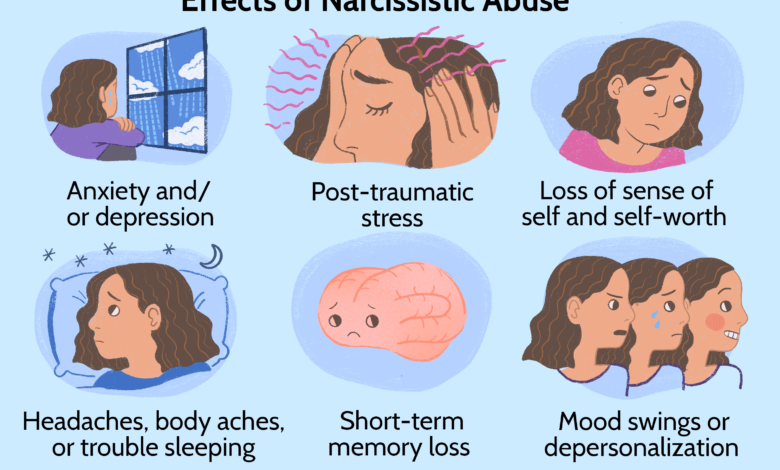Narcissist Meaning: Understanding Narcissism in Everyday Life

The term narcissist is thrown around a lot these days. From social media influencers to self-centered colleagues, many people use the word without fully understanding its true meaning. What does “narcissist” really mean, and how can we identify it in our daily lives? This article will explore the narcissist meaning, providing you with a better understanding of narcissism and how it may impact those around us.
Narcissism is often misunderstood as simply being about vanity or arrogance, but it runs deeper than that. Let’s dive into the topic to gain some clarity and insight into what it means to be a narcissist, how it affects individuals, and how to navigate life with someone who exhibits these traits.
What is a Narcissist? Defining Narcissist Meaning
At its core, a narcissist is someone who has an inflated sense of self-importance, a deep need for excessive attention and admiration, and a lack of empathy for others. However, behind this grandiose image, there is often a fragile self-esteem that’s vulnerable to the slightest criticism.
When discussing narcissist meaning, it’s important to note that it refers to a spectrum. Not all narcissists are the same. Some may have mild traits, while others may exhibit the full criteria for Narcissistic Personality Disorder (NPD).
Key Traits of a Narcissist
- Grandiosity: Narcissists often feel superior and expect special treatment.
- Lack of Empathy: They find it difficult to relate to or understand the feelings of others.
- Need for Admiration: Narcissists crave constant praise and validation.
- Entitlement: They believe they deserve more than others without earning it.
- Exploitative Behavior: Narcissists may take advantage of people to achieve their own goals.
While these traits might sound extreme, it’s important to remember that not every narcissist fits the same mold. Some may display subtle behaviors, while others may be more overt.
The Origins of Narcissism: Where Does it Come From?
The term “narcissist” originates from Greek mythology, where a young man named Narcissus fell in love with his reflection in a pool of water. His self-obsession ultimately led to his demise. This myth captures the essence of narcissism — an unhealthy focus on oneself.
From a psychological perspective, narcissism can develop due to several factors:
- Early Childhood Experiences: Over-praising or excessively criticizing children can foster narcissistic traits.
- Parental Influence: Parents who display narcissistic tendencies or neglect may raise children who adopt these behaviors.
- Cultural Factors: Society’s focus on individualism and self-promotion, especially in the age of social media, may encourage narcissistic behaviors.
Understanding the narcissist meaning requires looking at both psychological development and societal influences.
Types of Narcissism: Exploring the Spectrum
As mentioned earlier, narcissism is not a one-size-fits-all concept. There are different types of narcissists, each with distinct characteristics. Let’s look at the two main types:
Grandiose Narcissism
Grandiose narcissists are what most people picture when they hear the word “narcissist.” They are confident, outgoing, and believe they are better than others. They seek admiration and often have a charming, charismatic persona.
Key Characteristics:
- Arrogance and self-centeredness
- Outgoing and socially dominant
- A need for constant validation and praise
Vulnerable Narcissism
On the flip side, vulnerable narcissists are more introverted and insecure. They may appear shy or sensitive, but underneath lies a deep sense of entitlement and a need for reassurance. They are often hypersensitive to criticism and feel easily slighted by others.
Key Characteristics:
- Insecurity and low self-esteem
- A tendency to withdraw from others
- Sensitivity to perceived insults or criticism
Both types of narcissism fall under the umbrella of the narcissist meaning, but they manifest differently.
Narcissistic Personality Disorder (NPD): When Narcissism Becomes a Problem
While many people exhibit narcissistic traits, some individuals meet the criteria for Narcissistic Personality Disorder (NPD), a more extreme and harmful form of narcissism. NPD is a diagnosable condition in the DSM-5 (Diagnostic and Statistical Manual of Mental Disorders).
People with NPD often have difficulties in their relationships, work, and daily life due to their inability to empathize, accept criticism, or work collaboratively. They may alienate others or create toxic environments. NPD can have a significant impact on a person’s mental health and the well-being of those around them.
Common Signs of NPD:
- A grandiose sense of self-importance
- Fantasies of unlimited success, power, or beauty
- Belief that they are unique and can only be understood by high-status individuals
- A need for excessive admiration
- A sense of entitlement
- Manipulative or exploitative behavior
- A lack of empathy for others
- Envy of others or belief that others are envious of them
Dealing with a Narcissist: How to Handle Narcissistic Behavior
If you have a narcissist in your life, whether it’s a friend, family member, or colleague, it can be challenging. Their behavior can be frustrating, draining, and even hurtful. However, there are strategies that can help you navigate relationships with narcissistic individuals.
Tips for Managing Narcissistic Relationships
- Set Boundaries: It’s essential to establish clear boundaries. Narcissists tend to push limits, so standing your ground is key.
- Don’t Engage in Power Struggles: Narcissists often thrive on conflict and drama. Avoid getting sucked into arguments or trying to “win.”
- Maintain Emotional Distance: Protect your own mental health by not getting too emotionally invested in their behavior.
- Seek Support: If you’re struggling with a narcissist in your life, consider talking to a therapist or joining a support group for guidance.
The Impact of Narcissism on Relationships
One of the most significant areas where narcissism can cause harm is in personal relationships. Romantic partners, family members, and even friends may find it difficult to maintain a healthy relationship with a narcissist.
People with narcissistic traits often manipulate or gaslight others, leaving their partners feeling confused, hurt, or worthless. The narcissist meaning extends beyond the individual; it impacts those around them.
Common Relationship Challenges with Narcissists
- Lack of Empathy: Narcissists struggle to understand or care about their partner’s feelings.
- Constant Need for Attention: They may demand excessive attention and become upset if they don’t get it.
- Manipulative Behavior: Narcissists often twist situations to make themselves look good or to avoid responsibility.
Narcissism in the Workplace: Spotting a Narcissistic Colleague
Narcissistic traits don’t just affect personal relationships — they can also create challenges in professional environments. Working with a narcissistic colleague or boss can lead to toxic dynamics, as they may hog credit, refuse to collaborate, or belittle others to appear superior.
Signs of a Narcissistic Colleague:
- Always taking credit for team efforts
- Refusing to accept responsibility for mistakes
- Being overly competitive and dismissive of others’ ideas
- Constantly seeking validation from superiors
If you find yourself working with a narcissist, it’s important to maintain professionalism, set boundaries, and avoid getting drawn into their ego-driven games.
Table: Narcissist Traits vs. Healthy Confidence
| Traits | Narcissism | Healthy Confidence |
|---|---|---|
| Sense of Self | Inflated, grandiose | Balanced, realistic |
| Empathy | Lacking | Able to understand and connect with others |
| Relationships | Exploitative, self-centered | Cooperative, mutually beneficial |
| Response to Criticism | Defensive, angry | Open to feedback, learns from mistakes |
| Need for Admiration | Excessive, constant | Appreciates recognition, but not dependent |
| View of Others | Sees others as inferior or threats | Respects others, values diversity of skills |
Can Narcissists Change? Understanding Treatment and Growth
One question often asked is whether narcissists can change. The good news is that, with the right support and willingness, some individuals with narcissistic traits or even NPD can work towards self-improvement. Therapy, particularly cognitive behavioral therapy (CBT), has been shown to help narcissists become more self-aware and develop healthier relationships.
However, it’s important to note that change is not guaranteed, and it requires significant effort from the narcissist themselves. Most narcissists are unlikely to seek help unless they feel their behavior is causing them to lose something they value, such as relationships or job opportunities.
Leslie Knipfing and Narcissism: Can Narcissistic Traits Help?
Although narcissism is generally viewed in a negative light, there is a more nuanced side to the narcissist meaning. Some researchers believe that certain traits of narcissism, like confidence and ambition, can be channeled positively. In certain fields, such as entertainment, leadership, or sales, individuals with narcissistic tendencies may find success.
Take the example of Leslie Knipfing, who has worked behind the scenes in Hollywood. While there’s no evidence that Knipfing has narcissistic traits, it’s worth noting that the entertainment industry often attracts personalities who thrive on attention and validation. Some of these individuals might display characteristics associated with narcissism, yet they manage to leverage them in ways that benefit their careers.
Final Thoughts: Understanding the Full Narcissist Meaning
Narcissism is a complex and multifaceted concept that encompasses a wide range of behaviors, from healthy confidence to destructive manipulation. By understanding the narcissist meaning, we can better navigate relationships, workplaces, and our own mental health.
It’s essential to approach this topic with empathy and understanding, recognizing that narcissism is often a defense mechanism developed in response to early life experiences. Whether you’re dealing with a narcissist in your personal life or trying to better understand this psychological trait, awareness is the first step toward creating healthier relationships and boundaries.
In conclusion, the narcissist meaning is more than just self-love; it’s about understanding the deeper psychological forces at play and learning how to protect yourself from its harmful effects.





